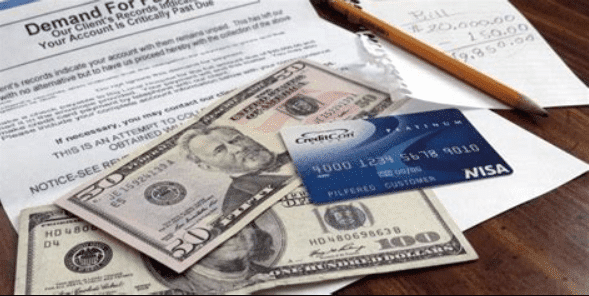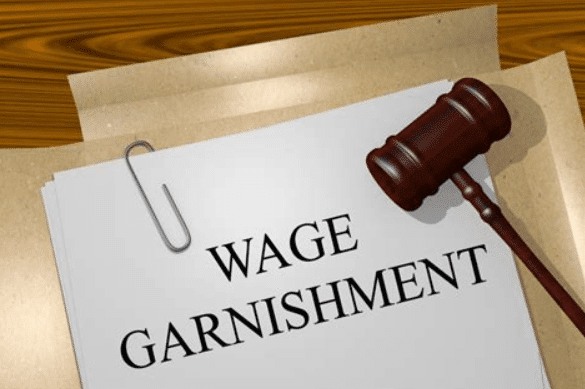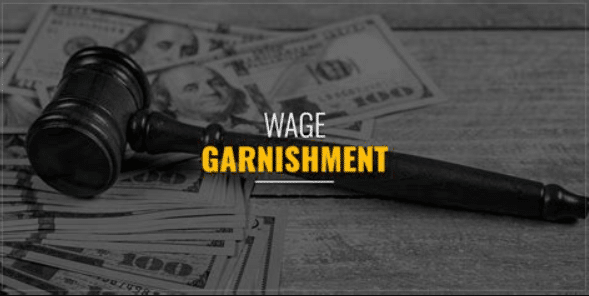Concerned about the prospect of facing a judgment leading to wage garnishment? ZumaZip.com offers a comprehensive overview of garnishment laws specific to New York state.
Each state maintains its distinct set of regulations dictating the permissible amount creditors can garnish from your wages subsequent to a default judgment. In New York, these laws are referred to as “income executions”.
New York stands out for its consumer protection measures, often surpassing federal mandates. Here, judgment creditors are typically limited to garnishing up to 10% of gross wages. However, depending on the nature of the debt, certain circumstances may allow creditors to garnish a higher percentage without securing a court judgment. Understanding the nuances of New York’s garnishment laws is crucial in navigating such situations.
Prevent wage garnishment with debt settlement.
Understanding income execution
An “income execution” serves as an alternative term for wage garnishment and is initiated through a court order mandating your employer to withhold a specified amount from each paycheck, directing these funds to your creditor. The legal constraints governing this process are determined by the state of New York.
Wage garnishment in New York primarily applies to three categories of debt:
- Unpaid income taxes
- Court-ordered child support
- Defaulted student loans
While the law allows for wage garnishment in these instances, creditors are still required to obtain a court judgment against you to enforce payment.
Keep your wages safe from creditors by filing a response with ZumaZip.
Wage garnishment limits in New York state
Due to federal regulations ensuring individuals maintain sufficient funds for living expenses, limitations are placed on the amount that can be garnished through income execution. Notably, New York State imposes more generous thresholds compared to federal standards, offering relief to those facing wage garnishment orders.
In New York, creditors are restricted to garnishing either 10% of gross wages or 25% of disposable income, with an upper limit of 30% of the minimum wage. Importantly, if disposable income falls below 30 times the minimum wage threshold, no wage garnishment is permitted.
“Disposable earnings” refer to wages remaining after deduction of taxes, including federal, state, and local taxes, as well as contributions to Social Security and unemployment compensation insurance. Voluntary deductions not mandated by law are excluded from disposable income calculations.
Other limits on wage garnishment
When facing debt related to child support, student loans, or taxes, distinct laws govern these obligations, allowing for wage garnishment without the necessity of a court judgment. The maximum garnishment amounts also vary according to the type of debt:
- Child support: Court orders pertaining to child support automatically authorize income withholding. In accordance with federal law, up to 50% of disposable earnings can be garnished for child support obligations. In certain cases, this percentage may increase to 60%.
- Defaulted student loans: The Department of Education can initiate wage garnishment without a court judgment for individuals in default on federal student loans. This process, known as administrative garnishment, allows for garnishment of up to 15% of disposable income, with a cap set at 30 times the minimum wage.
- Unpaid taxes: Federal government agencies can garnish wages without a court judgment for outstanding tax liabilities, a process referred to as “owing back taxes”. The garnishment limit is determined based on household size and income.
- Multiple garnishments: Federal regulations impose limits on the total amount that can be garnished when facing multiple garnishment orders. This total is capped at 10% of gross wages or 25% of disposable wages, whichever is lower.
In the event of termination while undergoing wage garnishment, it’s important to recognize legal protections in place. Specifically, termination specifically due to wage garnishment is unlawful. Exceptions exist only when facing multiple garnishment orders. In New York State, employers are prohibited from firing or refusing promotions based on wage garnishment.
You don’t have to fight wage garnishment alone.
Facing wage garnishment can be overwhelming, but you don’t have to navigate them alone. The Debt Lawyer specializes in offering comprehensive wage garnishment and bankruptcy solutions for residents of New Jersey and New York with a team of seasoned team of legal professionals dedicated to providing personalized guidance every step of the way. Whether you’re considering filing for bankruptcy or just seeking clarity about your financial situation, you have resources.
Moreover, ZumaZip is also a great resource to help you respond to a debt lawsuit and prevent wage garnishment through debt settlement.
Avoid wage garnishment through debt settlement
To resolve a debt, offering a creditor a lump-sum payment representing a portion of the balance is often necessary. Upon acceptance of the settlement offer by the creditor, and provided you fulfill your end of the agreement, the creditor will typically dismiss any pending lawsuit and waive any further claims against you.
Negotiating a debt settlement can alleviate the threat of a debt lawsuit and potential wage garnishment.
Introducing ZumaZip Settle, powered by ZumaZip, a technology-driven approach to debt settlement. Our software facilitates the exchange of settlement offers between you and the collector until a mutually acceptable agreement is reached. Once finalized, we assist you in managing settlement documentation and securely transferring your payment to the creditor or debt collector, safeguarding your financial information throughout the process.
Read more: Stop Wage Garnishment in New York
To learn more about how to stop wage garnishment through debt settlement in New York visit ZumaZip.com
What is ZumaZip?
ZumaZip is a convenient solution designed to streamline your response to a debt collection lawsuit. Here’s a breakdown of what you can expect when you use ZumaZip:
Firstly, you’ll access our user-friendly web application, which guides you through the process step by step. You’ll be prompted to answer a series of questions related to your specific situation. Once you’ve completed the questionnaire, you have the option to either print out the finalized forms and mail them to the appropriate courts yourself, or you can opt to utilize ZumaZip’s services to file them on your behalf. Additionally, if you choose this option, an attorney will review your document for added peace of mind.
If you’re seeking guidance on how to effectively respond to a debt collection lawsuit, ZumaZip can provide the assistance you need. Feel free to explore our FAQs for more information on what ZumaZip has to offer.
What if I haven’t been sued yet?
If you’ve only received a collections notice, but not a lawsuit, the best way to respond is with a Debt Validation Letter. When a debt collector contacts you in any way, whether it’s by phone or mail, you can respond by formally requesting a debt validation with a Debt Validation Letter . This letter notifies the collector that you dispute the debt and forces them to provide proof you owe the debt. They can’t call you or continue collecting until they provide validation of the debt. This flowchart shows how you can use a Debt Validation Letter to win.
Get started with a Debt Validation Letter here.
How to Answer a Summons for debt collection in all 50 states
Here’s a list of guides on how to respond to a debt collection lawsuit in each state:
- Alabama
- Alaska
- Arizona
- Arkansas
- California
- Colorado
- Connecticut
- Delaware
- Florida
- Georgia
- Hawaii
- Idaho
- Illinois
- Indiana
- Iowa
- Kansas
- Kentucky
- Louisiana
- Maine
- Maryland
- Massachusetts
- Michigan
- Minnesota
- Mississippi
- Missouri
- Montana
- Nebraska
- Nevada
- New Hampshire
- New Jersey
- New Mexico
- New York
- North Carolina
- North Dakota
- Ohio
- Oklahoma
- Oregon
- Pennsylvania
- Rhode Island
- South Carolina
- South Dakota
- Tennessee
- Texas
- Utah
- Vermont; Vermont (Small Claims court)
- Virginia
- Washington
- West Virginia
- Wisconsin
- Wyoming
Guides on how to beat every debt collector
Hey there! Facing off against a debt collector can feel like a daunting challenge, but fear not! We’re here to help you navigate through it all with our handy guides designed to assist you in beating every debt collector you encounter. Whether you’re facing a new lawsuit or dealing with a persistent collector, we’ve got your back. Stay positive, stay informed, and let’s tackle this together!
- Absolute Resolutions Investments LLC
- Accredited Collection Services
- Alliance One
- Amcol Clmbia
- American Recovery Service
- Asset Acceptance LLC
- Asset Recovery Solutions
- Associated Credit Services
- Autovest LLC
- Cach LLC
- Cavalry SPV I LLC
- Cerastes LLC
- Colinfobur
- Covington Credit
- Crown Asset Management
- CTC Debt Collector
- Cypress Financial Recoveries
- Delanor Kemper & Associates
- Eagle Loan of Ohio
- Educap
- Estate Information Services
- FIA Card Services
- Forster & Garbus
- Freshview Solutions
- Fulton Friedman & Gullace LLP
- Harvest Credit Management
- Howard Lee Schiff
- Hudson & Keyse LLC
- Integras Capital Recovery LLC
- Javitch Block
- Jefferson Capital Systems LLC
- LVNV Funding
- Mannbracken
- Mariner Finance
- Medicredit
- Michael J Adams PC
- Michael J Scott
- Midland Funding LLC
- Mullooly, Jeffrey, Rooney & Flynn
- Mountain Land Collections
- MRS Associates
- National Collegiate Trust
- Nationstar Foreclosure
- Northstar Capital Acquisition
- NCEP LLC
- NRC Collection Agency
- OneMain Financial
- Palisades Collection LLC
- Pallida LLC
- Paragon Revenue Group
- Pinnacle Collections Agency
- PMAB LLC
- Portfolio Recovery Associates
- Provest Law
- PYOD LLC
- Reunion Student Loan Finance Corporation
- Revenue Group
- Regents and Associates
- RSIEH
- Salander Enterprises LLC
- Second Round Sub LLC
- Security Credit Services
- Sherman Financial Group
- Suttell and Hammer
- T-Mobile
- Transworld Systems
- Tulsa Teachers Credit Union
- UCB Collection
- Velo Law Office
- Velocity Investments
- Waypoint Resource Group
- Weinberg and Associates
- Wolpoff & Abramson
Settle your medical debt
Having a health challenge is stressful, but dealing medical debt on top of it is overwhelming. Here are some resources on how to manage medical debt.
- Am I Responsible for My Spouse’s Medical Debt?
- Do I Need a Lawyer for Medical Bills?
- Do I Need a Lawyer to Fight Medical Bill Debt?
- Does Bankruptcy Clear Medical Debt?
- How Much Do Collection Agencies Pay for Medical Debt?
- How to Find Medical Debt Forgiveness Programs
- Is There a Statute of Limitations on Medical Bills?
- Medical Debt Statute of Limitations by State
- Summoned to Court for Medical Bills — What Do I Do?
- Summoned to Court for Medical Bills? What to Do Next
Stop calls from Debt Collectors
Do you keep getting calls from an unknown number, only to realize that it’s a debt collector on the other line? If you’ve been called by any of the following numbers, chances are you have collectors coming after you, and we’ll tell you how to stop them.
- 800-390-7584
- 800-289-8004
- 800-955-6600
- 877-366-0169
- 877-591-0747
- 800-278-2420
- 800-604-0064
- 800-846-6406
- 877-317-0948
- 888-899-4332
- 888-912-7925
- 202-367-9070
- 502-267-7522
Other wage garnishment resources
- Bank Account Garnishment and Liens in Texas
- Can I Stop Wage Garnishment?
- Can My Wife’s Bank Account Be Garnished for My Debt?
- Can Payday Loans Garnish Your Wages?
- Can pensions be garnished?
- Can Private Disability Payments Be Garnished?
- Can Social Security Disability Be Garnished?
- Can They Garnish Your Wages for Credit Card Debt?
- Can You Stop a Garnishment Once It Starts?
- Guide to Garnishment Limits by State
- How Can I Stop Wage Garnishments Immediately?
- How Long Before a Creditor Can Garnish Wages?
- How Long Does It Take to Get Garnished Wages Back?
- How to Fight a Wage Garnishment
- How to Prevent Wage Garnishment
- How to Stop a Garnishment
- How to Stop Social Security Wage Garnishment
- How to Stop Wage Garnishment — Everything You Need to Know
- New York Garnishment Laws – Overview
- Ohio Garnishment Laws — What They Say
- Wage Garnishment Lawyer
- What Is Wage Garnishment?



































